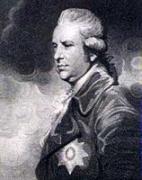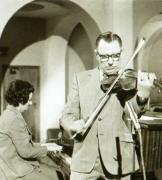|
|
||||||||||||||||||||||||
 |
Featured person
Recently added |
George Macartney (1737 - 1806): |
||||||||||||||||||||||

|
| Viscount Macartney |
George Macartney was born at Lissanoure, Loughguile, Co Antrim, on 3 May 1737, the descendant of an old Scottish family, the Macartneys of Auchinleck. After being educated in Co. Kildare and at Trinity College, Dublin (where he graduated in 1759) he spent a short period reading law at the Inner Temple, London, before travelling on the continent of Europe, where he made the acquaintance of Stephen Fox, brother to Charles James and son of the political magnate Lord Holland. He had the reputation of being a handsome and accomplished young man.
In 1764, with Holland's patronage, he was appointed envoy extraordinary to Russia and spent three years in St Petersburg, where he negotiated a commercial treaty with Catherine the Great. Returning to England in 1767, he became a member of the Westminster parliament but resigned his seat when elected to the Irish House of Commons. This event led to his appointment as Chief Secretary for Ireland (1767-1772)
Most of the rest of his career was spent abroad. In 1775 he was made Governor of Grenada, the Grenadines and Tobago in the West Indies and for a short period was a prisoner of the French, with whom Britain was then at war. His governorship of Madras (1780-1785) also took place in troubled times, because of the conflict with the Dutch and the local Indian ruler Hayder Ali. In both these posts Macartney acquitted himself well, and in 1785 was offered the governorship of Bengal, but turned it down. Back in England he challenged and fought a duel with General Stuart, whom he had had sent home from India for incompetence, and was badly wounded.
In 1792 he was created Earl, then Viscount, Macartney of Dervock in the peerage of Ireland, as a preliminary to taking up a new appointment as Britain's first envoy to China. He arrived in Peking (now Beijing) on in 1793 with a large British delegation on board a 64-gun man of war, and was received with some pomp by the Emperor Qian Long. However his mission - to negotiate a commercial treaty with the Chinese - was abortive; the Emperor's letter of rejection had been written even before the embassy arrived. Macartney himself returned to Britain in 1794; his mission, though unsuccessful, had marked a key moment in the development of relations between China and the west.
In 1795 Macartney was sent on a confidential mission to the exiled French king Louis XVIII at Verona, and in the following year was appointed Governor of the newly acquired colony Cape of Good Hope, where ill health forced his resignation in 1798. He died in Chiswick, Middlesex, on 31 March 1806
| Born: | 3 May 1737 |
| Died: | 31 March 1806 |
| Patrick Devlin |
| Bibliography: Memoir by J.Barrow (includes Macartney's Journal of the Embassy to China, An Account of an Embassy to Russia and A Political Account of Ireland). Biography by Peter Roebuck, 1983 |


Home | Our Policies | Plaques | Browse | Search | Sponsors | Links | Help | Contact
Privacy & Disclaimer | Cookie Policy | Site Map | Website Design By K-Point
© 2024 Ulster History Circle









